Gamification Group is hosting and coaching MSCA-IF candidates with the goal of providing 2-3 year postdoc positions
EU H2020 Marie Sklodowska Curie Action Individual Fellowship provides opportunities to researchers of any nationality to acquire and transfer new knowledge and to work on research and innovation in Europe (EU Member States and Horizon 2020 Associated Countries) and beyond. The goal of the Individual Fellowships is to enhance the creative and innovative potential of experienced researchers, wishing to diversify their individual competence in terms of skill acquisition through advanced training, international and intersectoral mobility.
Tampere University (TAU) / Gamification Group (GG) / Faculty of Information Technology and Communication Sciences / lead by Professor Juho Hamari, is interested to act as a host organisation for Individual Fellowships. We offer you a two year working contract at TAU, with 65 000-70 000 € annual salary (depending on family allowance). The salary is subject to personal taxation, social security and pension deductions.
Prof. Hamari & The Gamification Group backed up by Tampere University will jointly develop a competitive MSCA IF proposal with the applicant. To that end, TAU will organise a MSCA-IF Master Class webinar series in April-June 2020. The webinars will replace the MSCA-IF Master Class, which was planned to take place in Tampere 8-10 June 2020. The Master Class in Tampere has been cancelled to prevent the spread of Coronavirus (COVID-19).
The webinars will be open for all IF-applicants who apply Tampere University as host. The aim of the Master Class it to give coaching on how to write a competitive proposal and work on the research idea together with the supervisor. The Master Class is free of charge, and participation is highly recommended to all applicants.
The webinars are pre-recorded and will be published once a week under the following scheme:
- 20.4. General info on MSCA-IF funding and how to open the proposal in the submission system
- 27.4. How to write a successful proposal Part I: Excellence
- 4.5. How to write a successful proposal Part II: Impact
- 11.5. How to write a successful proposal Part III: Implementation
Important dates (see all instructions below):
- 15 April: Expression of Interest
- April-June: MSCA-IF Master Class webinar series
- 9 September: Horizon 2020 MSCA-IF proposal submission deadline
Researchers interested to apply the IF grant and work with Professor Juho Hamari at Tampere University, should verify that they fulfil the respective eligibility criteria and then send an Expression of Interest as soon as possible (but no later than 15th of April), by email to: preaward@tuni.fi and juho.hamari@tuni.fi with the following reference: “MSCA IF “firstname_lastname“. You can also make inquiries to Juho Hamari beforehand about the research group and possible research topics. The expression of interest should include the following documents:
Expression of Interest must be in PDF-format and consist of the following:
- Brief motivation letter (max. 2 pages) of the applicant including:
- short description of the planned MSCA-IF research project and research interests
- the added value of the stay in the host research group from career development perspective
- CV (academic) of the applicant (max. 5 pages) – showing clearly the eligibility of the applicant*
- Recommendation letter (max. 1 page) of the supervisor (TAU staff) on:
- the research quality of the work of the applicant and
- the added value of the fellowship for the research group
Master Class participation is highly recommended for all applicants. The Master class is free of charge.
Link to Call: https://ec.europa.eu/info/funding-tenders/opportunities/portal/screen/opportunities/topic-details/msca-if-2020
*) Horizon 2020 MSCA-IF eligibility criteria:
- Applicant has a doctoral degree or at least four years’ full-time research experience by the time of the call deadline. (Full-Time Equivalent Research Experience is measured from the date when a researcher obtained the degree entitling him/her to embark on a doctorate, either in the country in which the degree was obtained or in the country in which the researcher is recruited, even if a doctorate was never started or envisaged.)
- The applicant must not have resided or carried out his/her main activity (work, studies, etc.) in Finland for more than 12 months between 9.9.2017 and 9.9.2020.
Gamification Group’s research covers several forms of information technologies such as games, gamification, game-based learning, persuasive technologies, social networking services, online video streaming, eSports, sharing economy, crowdsourcing, virtual economies, virtual reality, augmented reality and mixed reality. GG has published several seminal empirical, theoretical and meta-analytical scholarly articles from perspective of consumer behavior, human-computer interaction, game studies and information systems science. GG is the most internationally published research group especially on the topic of gamification, but pursues several topics related to games and novel information technologies. http://gamification.group
Possible topics (but not limited to) that would have a great fit with the Gamification Group are e.g. the following
- Users: e.g. engagement, player motivations, player experience
- Education: e.g. serious games, game-based learning,
- Media: e.g. eSports, streaming
- Commerce: e.g. business models, free-to-play, gambling, gamification as marketing
- Work: e.g. organizational gamification, gameful work, gamification in leadership
- Technology: e.g. virtual reality, augmented reality
- Toys & play: e.g. toy play, toy design/creation, toys in education, Internet of Toys
- Health: e.g. quantified self, games for health
- Culture: e.g. the gamification of everyday life
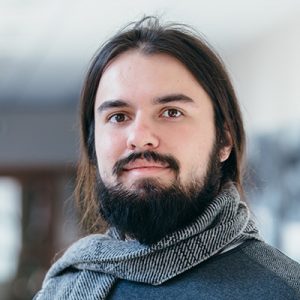 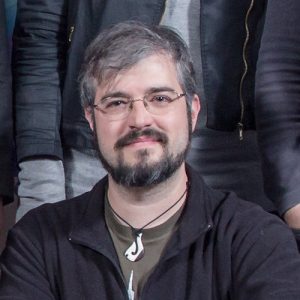 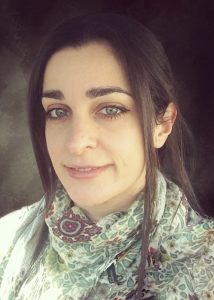
“I witnessed one of the best experiences as a supervisee while preparing my application for MSCA-IF. Together with my four colleagues from different parts of the world, we were guided by the research services of Tampere University in a 2-day grant-writing workshop followed by a pleasant dinner in Tampere. Still, the workshop was only the hands-on part of this longitudinal support as I had been continuously and rigorously supervised by Juho Hamari, supported by the experts in research services and also by the colleagues in Gamification Group. As a result of this process, GG now hosts three successful MSCA-IF grantees who will also be of help for future applicants.” — Oğuz Turan Buruk, MSCA-IF grantee with the project WEARTUAL. |
|
| “Coaching is a fundamental asset for any MSCA application. While I was writing my project at Tampere University, researchers and staff have been invaluable advisors: inspiring me and helping strengthen my project both from a practical and methodological perspective. (…) At the Gamification Group I found a dynamic and supportive environment to develop ReClaim, a place full of stimulating discussions and great research opportunities.”
— Mattia Thibault, MSCA-IF grantee with the project ReClaim.
“Coaching is of paramount importance to any MSCA application. Writing my project at Tampere University was a unique experience that contributed to the application’s success. Professor, researchers and university staff have been helpful, encouraging and they patiently guided me through the whole process, answering immediately all my questions. With their great experience, they helped me to structure, strengthen and enrich my proposal, offering valuable advice from a practical and a methodological perspective. Last but not least, Gamification Group’s environment is an ideal place for a researcher, as it is friendly, inspirational, supportive and a source of great research opportunities.” — Nikoletta Zampeta Legaki, Gamification Group member, MSCA-IF grantee with the project GANDALF. |
Tampere University is one of the most multidisciplinary universities in Finland. Almost all internationally recognised fields of study are represented at our university.
Tampere University was created in January 2019 by the merger of the University of Tampere and Tampere University of Technology. TAU is Finland’s second-largest university with 20.000 students and 330 professors. TAU is a partner in the ECIU University, one of the first 17 Erasmus+ European Universities alliances that will become the universities of the future, promoting European values and identity, and revolutionizing the quality and competitiveness of European higher education.
At the new University, technology and social sciences come together in a unique way. Our research groups and projects conduct multidisciplinary research across institutional boundaries.
Welcome to join us at GG @ TAU!
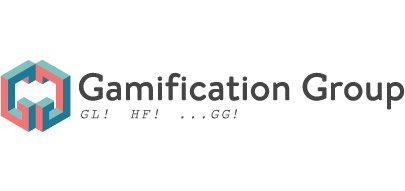

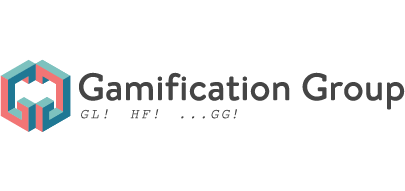

Sorry, the comment form is closed at this time.